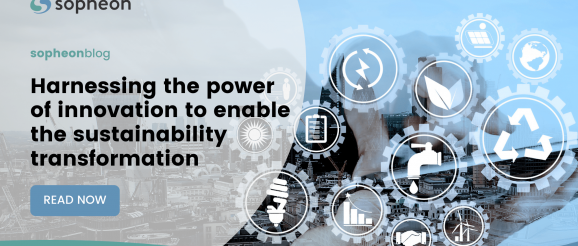Harnessing the power of innovation to enable the sustainability transformation

Currently, we as humans are not living in a way that can be sustained – we’re using the earth’s resources at a faster rate than they can be replenished and producing waste at a faster rate than the earth can deal with it. We’re breaching some of these boundaries and getting closer to others. Once boundaries are breached, there’s a high risk that tipping points will be reached where feedback loops result in non-linear catastrophic changes to the Earth’s currently stable climate that we rely on for human life to be supported.
At the same time, everyone has a basic set of social needs (e.g., food, water, health, equality, peace, justice) that must be met for people to thrive. Kate Raworth developed the idea of a doughnut which is the area where we need to be for all humans to thrive – bounded by a social foundation that must be met and the planetary boundaries that must not be breached.
Watch Kate Raworth’s TED talk to learn more about how a healthy economy should be designed to thrive, not grow.
This prompts some questions that could be a great starting point for idea generation:
How might we de-link economic growth from the use of finite natural resources? One of the solutions to that question could come from the idea of a circular economy, which is a remarkable catalyst for sustainable innovation.
This raises more questions and opportunities:
But what if we could produce meat without needing a real live cow? To many, this may sound impossible or even like a fantasy, but it’s precisely what’s being done in labs that are producing lab-grown meat (real meat, not plant-based equivalents).
As innovators, we’re skilled at challenging assumptions – we have the tools, knowledge, and skills to do this. In the sustainability space, we’re often told that change can’t happen because certain things are technically impossible, or because it’s impossible to change behaviors, or our current economic model is necessary.
We are on the edge of a radical sustainability transformation. To remain competitive and be resilient to the inevitable impacts of climate change, businesses will need to put sustainability at the heart of their strategy. We, as innovators, have a crucial role to play in challenging assumptions and spotting opportunities. We have the toolkit to create new business models and make the impossible possible. This will be crucial for a business to remain relevant and survive –for the planet’s sake and for future generations.
